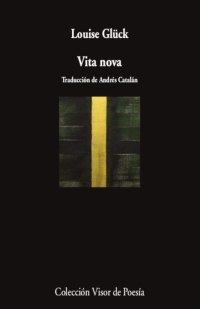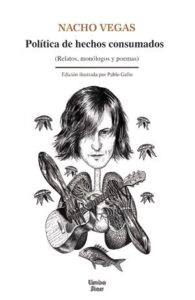
New life
de Louise luck
“Vita nova” by Louise Glück, one of the most recognized and awarded poets in contemporary literature. The book was published in 1999 and is made up of 47 poems that explore themes such as love, pain, death and transformation. This book is known for its focus on universal themes such as love, loss, transformation, and the search for identity. Through her lyrical language and evocative imagery, Glück manages to capture the essence of the human experience in her verse.
The collection begins with the poem “Vita nova”, which establishes the introspective and reflective tone that prevails throughout the book. With lines like “You saved me, you should remember me,” Glück introduces the reader to a world of introspection and self-exploration, where the past and present intertwine to shape the poet’s identity.
Throughout “Vita Nova,” Glück uses images of nature as metaphors to represent transformation and rebirth. For example, she refers to the metamorphosis of butterflies, the change of seasons and the growth of plants. These images serve to illustrate life’s ability to change and evolve, as well as the possibility of rebirth and personal growth.
One of the highlights of Glück’s work is his ability to address universal themes in an accessible and moving way. Although she does not delve into sociopolitical issues, the author addresses topics that are relevant to everyone: the human experience of love, loss, and the search for identity. This makes “Vita nova” a read that many can identify with and find solace in.
Glück’s writing style is another element that contributes to the appeal of “Vita nova.” Her language is simple and direct, allowing her words and images to reach the reader in a clear and powerful way. Despite the simplicity of her style, Glück manages to convey an emotional depth that resonates in the heart of the reader.
The title of the book refers to the work of the same name by Dante Alighieri, in which the author narrates his meeting and falling in love with Beatrice, his idealized muse. However, Glück does not follow Dante’s model, but instead creates his own version of “new life”, one that emerges after a breakup and involves a process of mourning and rebirth.
Glück’s poems are short, simple and direct, but at the same time deep and moving. His poetic voice addresses his former lover, whom he questions, questions, reproaches and remembers with nostalgia and pain. She also addresses herself, reflecting on her identity, her past, and her future. Glück’s poetry is a poetry of the self, but also a poetry of we, a poetry that seeks to communicate and connect with the other and with the reader.
The book is divided into four parts: “The Night”, “The Earth”, “The Garden” and “The Spring”. Each one of them represents a stage in the process of recovering the poetic voice, from darkness and emptiness to light and hope. The book culminates with the poem that gives it its name, “Vita nova”, in which the poetic voice declares having found a new life, a new way of loving and writing.
“Vita nova” is a book that has impressed me with its beauty, its honesty and its strength. It is a book that talks about love, but also about heartbreak, about loss, but also about gain, about death, but also about life. It is a book that invites us to live and read with intensity and passion.
In short, “Vita nova” is an exceptional poetry collection that explores universal themes through lyrical and evocative language. Louise Glück demonstrates her ability to capture the essence of the human experience in her verse, addressing themes such as love, loss and the search for identity in an accessible and moving way. With her direct writing style and her images of nature, “Vita Nova” is a worthwhile read for any poetry lover.
Source: https://algunoslibrosbuenos.com/vita-nova


